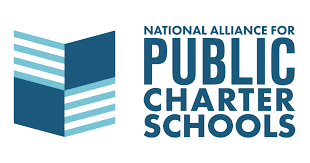
(INDIANAPOLIS) — Today, the National Alliance for Public Charter Schools (National Alliance) released its annual state-by-state ranking of charter school laws, Measuring Up to the Model: A Ranking of State Public Charter School Laws, Eleventh Edition. Indiana took first place for the fifth year in a row, demonstrating the quality of the state’s law. The state rankings report helps policymakers and education advocates see which states have an excellent charter school law, like Indiana, and which states have room for improvement.
Since enacting its law in 2001, Hoosier State charter schools now serve more than 45,000 public school students across more than 100 charter schools. Indiana’s law does not cap charter school growth, includes multiple authorizers, and provides strong autonomy and accountability. Indiana made significant strides in recent years to provide more equitable funding to charter schools, although work remains to be done.
The biggest area for improvement in Indiana’s law is to ensure the funding gap between district schools and charter schools is closed.
“Indiana’s charter schools and their success are an expression of the power of families to make the best decisions for their students’ education,” said the Director of the Indiana Charter School Network, Marcie Brown Carter. “Indiana’s policymakers have ensured our law holds charter schools to high standards of accountability, and the results show as our schools typically perform as well as or better than traditional public schools.”
The National Alliance’s 2020 rankings measure each state’s charter school law against a “gold standard” model charter school law, A Model Law for Supporting the Growth of High-Quality Charter Schools: Second Edition, released in October 2016. The Eleventh Edition of Measuring Up to the Model ranks charter school laws in 45 states and the District of Columbia. Each law receives a score based on 21 essential metrics, including accountability, flexibility, authorization, performance-based contracts, and funding equity.
“National School Choice Week is an opportune time to examine how to improve the laws governing high-quality public charter schools,” said National Alliance for Public Charter School President and CEO Nina Rees. “Indiana sets an example for the rest of the country in the strength of its charter school law, and the entire public education system benefits because of it.”
For additional key findings in the report, please view the national press release from the National Alliance for Public Charter Schools.
About Public Charter Schools
Public charter schools are independent, public, and tuition-free schools that are given the freedom to be more innovative while being held accountable for advancing student achievement. Since 2010, many research studies have found that students in charter schools do better in school than their traditional school peers. For example, one study by the Center for Research on Education Outcomes at Stanford University found that charter schools do a better job teaching low income students, minority students, and students who are still learning English than traditional schools. Separate studies by the Center on Reinventing Public Education and Mathematica Policy Research have found that charter school students are more likely to graduate from high school, go on to college, stay in college and have higher earnings in early adulthood.
About the National Alliance for Public Charter Schools
The National Alliance for Public Charter Schools is the leading national nonprofit organization committed to advancing the public charter school movement. Our mission is to lead public education to unprecedented levels of academic achievement by fostering a strong charter sector. For more information, please visit www.publiccharters.org



